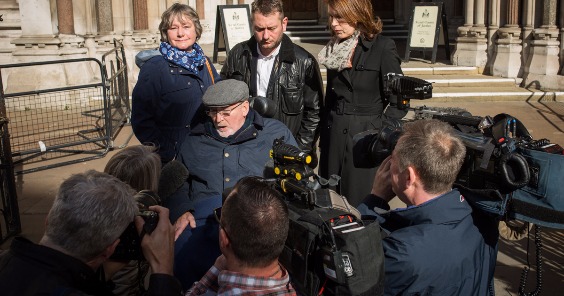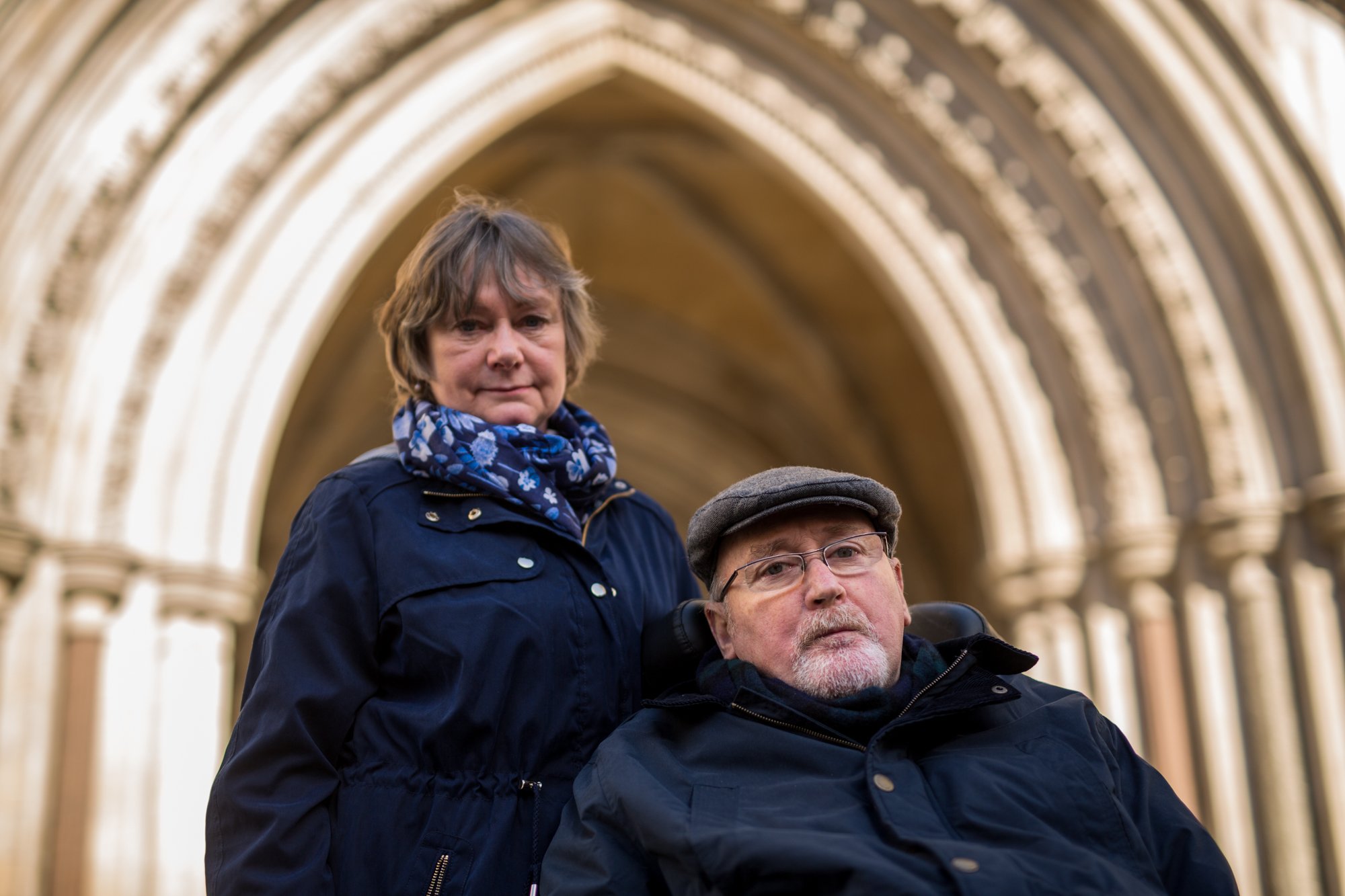A terminally ill man who took his right to die case to the High Court has had his challenge rejected.
Noel Conway, who suffers from Motor Neurone Disease, was seeking permission for a doctor to assist in a “peaceful and dignified” death when his condition inevitably deteriorates.
The 67-year-old argued he should be allowed to say goodbye to his loved ones while he remained physically competent, “not to be in a zombie-like condition suffering both physically and psychologically” at the point of death.
An Ongoing Fight in the Courts
Video Credit: Dignity in Dying / YouTube
The case revolved around two significant pieces of legislation. Conway argued that The Suicide Act 1961 is superseded by Article 8 of the Human Rights Convention, which protects the right to respect for family life and privacy.
The Suicide Act 1961 criminalises assisted suicide, meaning anyone who helps someone else end their life could face up to 14 years in prison.
However, Noel’s case was rejected by Lord Justice Sales, Mr Justice Garnham and Mrs Justice Whipple at the High Court this morning.
‘This decision denies me a real say over how and when I will die’
 Noel Conway outside court. Image Credit: Dignity in Dying / Crowdfunder
Noel Conway outside court. Image Credit: Dignity in Dying / Crowdfunder
After the ruling was delivered, Mr Conway said “The experiences of those who are terminally ill need to be heard. This decision denies me a real say over how and when I will die.
“I am told the only option I currently have is to effectively suffocate to death by choosing to remove my ventilator, which I am now dependent on to breathe for up to 22 hours a day. There is no way of knowing how long it would take me to die if I did this, or whether my suffering could be fully relieved. To me, this is not choice – this is cruelty.”
The only option I currently have is to effectively suffocate to death
Conway’s legal battle began shortly after his diagnosis in November 2014, saying he wanted to have the “option of a safe, peaceful assisted death”.
While Noel’s cases is supported by organisations such as Dignity in Dying and the British Humanist Association, other groups such as the British Medical Association back the current rules, saying they protect vulnerable people from being coerced or manipulated into making a decision.
Mr Conway and his legal team have confirmed they will be looking to appeal the ruling.






